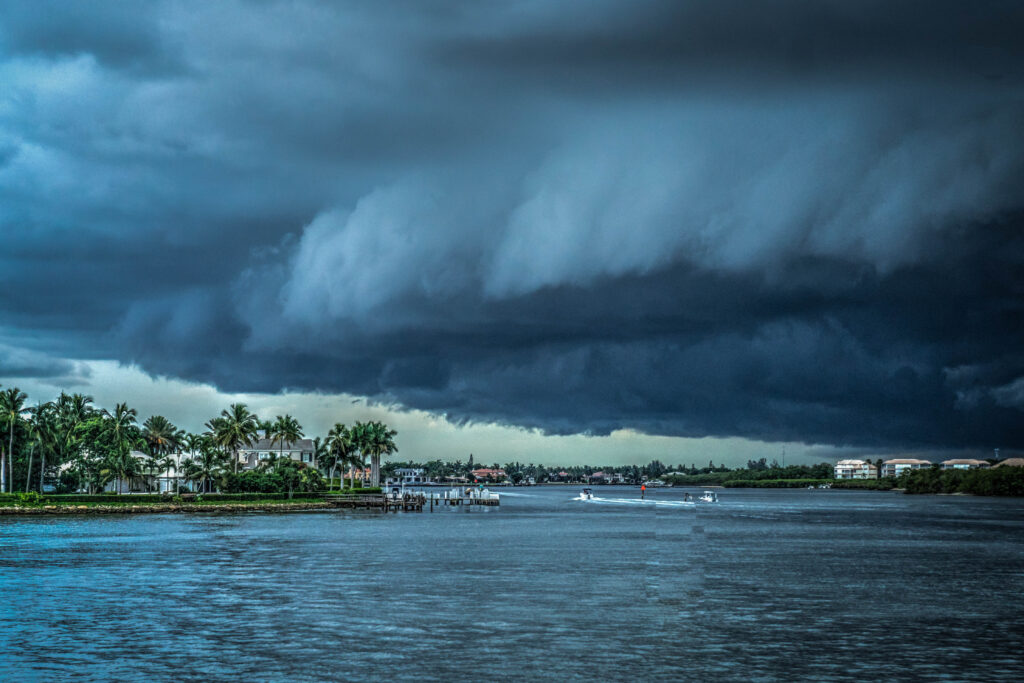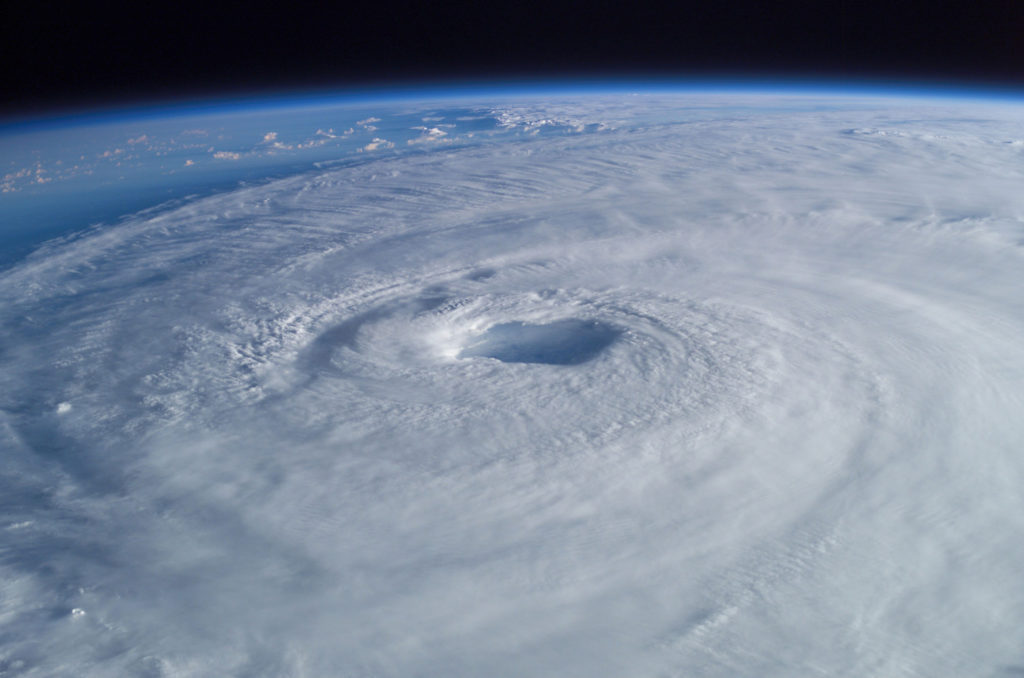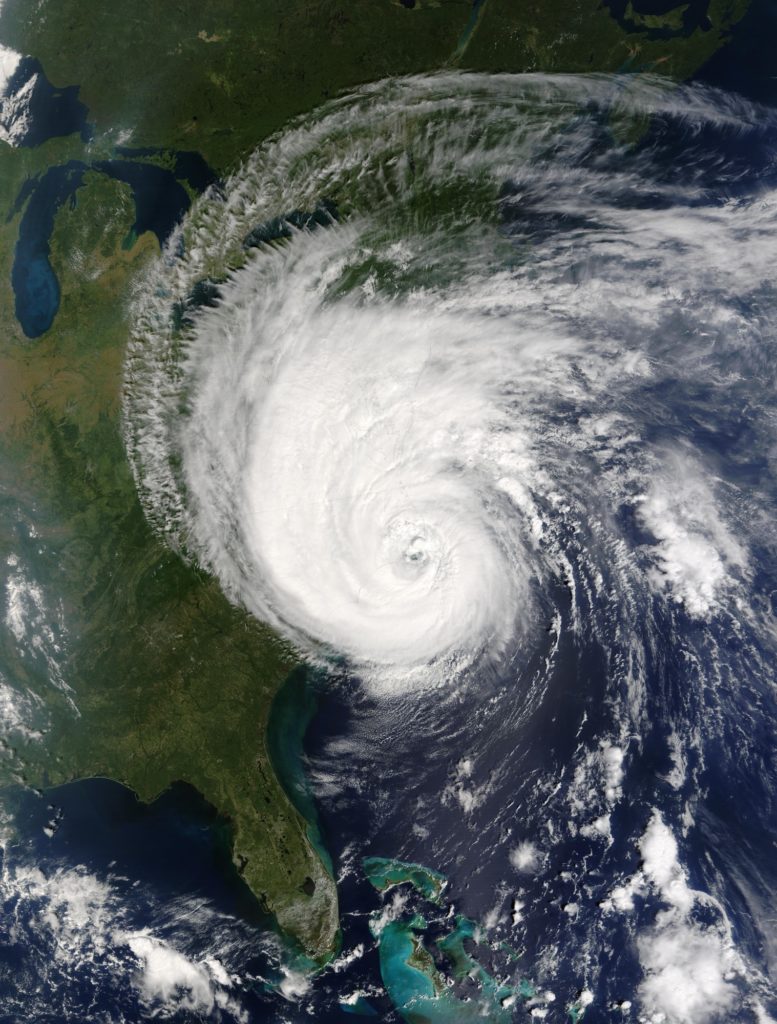
For the very first time in recorded history, three category four and higher hurricanes have battered U.S. cities and coastlines in a single season.
Hurricane Harvey dropped 50 inches of rain on residents of Texas and Louisiana causing damage, reported to be in the billions of dollars and displacing thousands of families.
The largest storm to ever hit the Atlantic, Hurricane Irma was a monstrous 800 miles wide and sustained winds of over 180 miles per hour for over 24 hours with gusts measuring more than 200 mph. It swept through the Caribbean, leaving massive amounts of damage and casualties in its wake.
As recent as Wednesday, Hurricane Maria rocked Puerto Rico, inflicting extensive damage to an already wounded island. Heavy rain is causing major flooding and 100 percent of the U.S. territory has lost power said Puerto Rico’s office of emergency management. The shortage could possibly linger for months.

On Thursday, ABC News reported 12,000 people are being housed in shelters powered by generators. More continue to be displaced by the heavy rain and depletion of shelter and resources.
The storms have caused so much damage their names have been suggested for retirement.
“These names usually recycle every 6 years,” said Chris Dolce for weather.com. “Unless one is so destructive and/or deadly that the World Meteorological Organization votes to retire that name from future lists.”
These storms are just a few of the natural disasters that have caused major concerns across the globe in 2017.
Earthquakes, mudslides, stifling heat and extended fire seasons have all contributed to massive property damage and loss of life — raising concerns about the environment and the effects of climate change.
Dr. Dan Bedford, professor of geography at Weber State University and member of the iUtah project said, “These storms might not be directly caused by climate change but they are certainly intensified by it”.
The Mountain West has seen its share of difficulty this summer. The National Weather Service reported temperatures experienced in Utah during July were the 2nd hottest on record.
“There is an overwhelming body of evidence that the changes we are seeing are a real thing caused by people. There are things we can do about it, things we must do about it starting right now,” Bedford said.
The fundamental shift that needs to occur is that we need to decarbonize in a way that we do not crash the economy we have.
“We need to be aware that there are people and communities whose livelihoods depend on the way things are right now,” said Bedford. “But if we keep on doing the things we are doing right now the world that our children grow up in is going to look very different than what it does now”.
Dr. Stacy Palen, professor of physics at WSU, said due to the increased temperatures, the inability for these temperatures to drop sufficiently during night time hours and lack of consistent rainfall the fire season in Utah has been extended 70 days.
Globalchange.com notes that because of these increases in temperature, snowpack and stream flow will decline in this region. This will decrease surface water supply crucial to cities, agriculture and ecosystems.
During a recent interview with CNN astrophysicist and science communicator Neil deGrasse Tyson, he said that the storms and natural phenomena we are witnessing are a “shot across our bow” and expressed his concerns about the denial of scientific observations concerning changes in the earth’s climate.
“What will it take for people to recognize that a community of scientists are learning objective truths about the natural world and you can benefit from it?” asked Tyson.
There are fewer deaths per hurricane than ever because of the scientific models we have are able predict storms and their paths weeks in advance while saving more lives than any time before, reasoned Tyson.
Dr. Bedford is optimistic politicians in Utah are beginning to see the science behind climate change as both a valid and urgent issue. Even traditionally conservative Republicans have joined the discussion about the many issues surrounding the effects of climate change.
“I want to give a major shout out to Mia Love,” Dr. Bedford said. “She is on board with the science and has been receptive to the topic of climate change.”
Congresswoman Mia Love is now a participating member of the Climate Solutions Caucus, a bipartisan group which explores policy options that address the impacts, causes and challenges of our changing climate.
Leadership on campus has made Weber State University a benchmark institution in the west for conservation and sustainability. The University has begun implementing protocols to provide sustainable energy sources for campus operations.
The Weber State sustainability office has already implemented a two-step process focused on reducing fossil fuel conception by introducing energy efficient projects and electrifying everything through using source energy from renewable resources.

Sustainability manager Jennifer Bodine is convinced that reducing the university’s carbon footprint is physically possible and financially feasible.
“So far we have decreased our carbon footprint by over a third and saved the university millions of dollars,” said Bodine.
Current projects on campus are implementing “ground sourcing” techniques that essentially use the earth as a battery for producing electricity. The electricity is then used to move the energy throughout the facilities on campus.
This not only reduces the university’s use of fossil fuel material but reduces costs and emissions associated with using traditional energy sources.
“We are taking these savings and reinvesting them until we are carbon neutral,” said Bodine.
Scientists and educators are sympathetic when considering the task of reducing our dependency on fossil fuels and agree that it can sometimes be overwhelming. “If each of us do the small things it can make a really big impact,” Dr. Palen said. “Water your lawn less, carpool to work or school. It doesn’t have to be a big change.”
“I think just being aware is the most important thing,” Dr. Bedford said. “It is easy to forget just how much is involved”.













